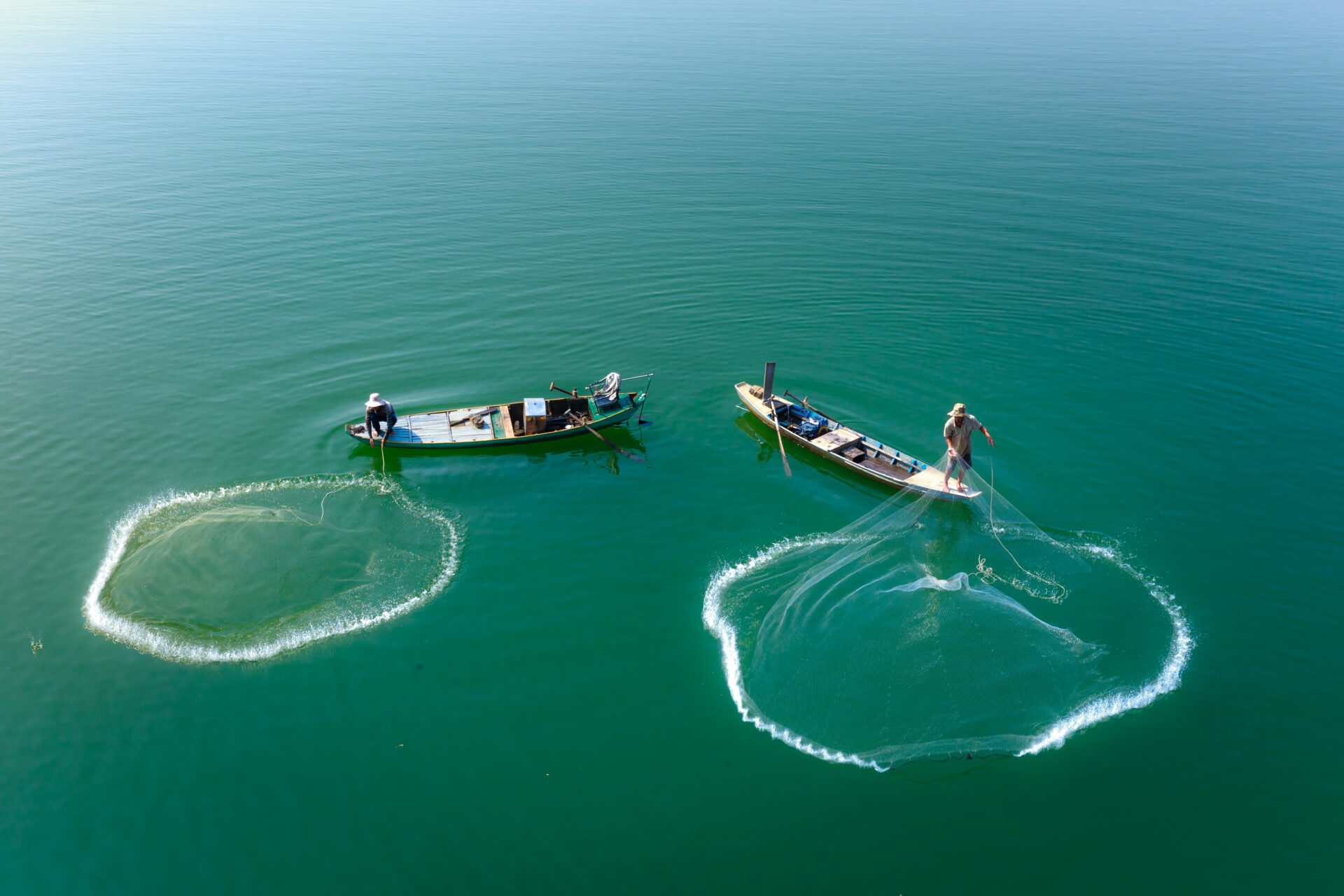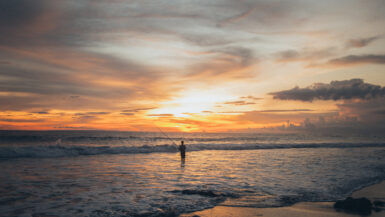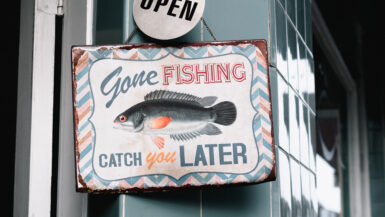Fishing can be an enjoyable and exciting activity to do either on your own or with friends and family. Whether you’re a complete beginner or an experienced angler, learning the basics of freshwater fishing can definitely be beneficial. A beginners guide to freshwater fishing can provide you with all the information and knowledge you’ll need to get started in this rewarding hobby. This article will provide a comprehensive overview of the essential steps, tools, and techniques for freshwater fishing, so that you can make the most out of your next fishing trip.
Types of Freshwater Fish
The diversity of freshwater fish species that inhabit our various lakes and rivers is truly incredible. Depending on where you live and what type of environment you are fishing in, you will be exposed to a wide range of species. Here, we will explore just a few of the many types of freshwater fish you are likely to encounter, as well as their unique behaviors.
Trout
Trout are a popular target species for freshwater fishing due to their willingness to take bait and their relatively hearty size. Trout are a type of salmonid fish and come in a variety of colors, sizes, and habitats. Different species of trout inhabit different parts of the world and the United States is home to three species: rainbow, cutthroat, and golden trout. The best way to catch trout is to use bait presented in a natural way.
Northern Pike
Northern pike are a fierce predator fish that inhabit shallow, weedy waters. These fish can grow up to several feet large and can provide quite a challenge for anglers. In order to successfully catch a pike, anglers should use large lures or spoons that mimic the natural prey of the pike, such as small fish or frogs. Generally, pike are caught in the springtime when they are actively spawning.
Smallmouth Bass
Smallmouth bass are a common freshwater species that are found throughout the United States. These fish prefer clear, shallow waters and can be caught with a variety of lures. Smallmouth bass are most active in the early morning and late evening and can be caught on natural baits, flies, and lures.
Catfish
Catfish are an ancient species of freshwater fish that inhabit many freshwater systems throughout the world. Catfish require baits that replicate the bottom feeder habits of the fish. To successfully target catfish, anglers should use live baits such as worms or baitfish, or artificial lures that sink slowly in the water. Catfish can be found in many habitats and make a great target for the beginning angler.
Crappie
Crappie is a popular panfish that inhabits many freshwater systems. Crappie can be caught relatively easily with the right baits and can make a great meal or an interesting trophy. Crappie can be caught with a variety of baits, including jigs, minnows, and worms. To successfully catch crappie, anglers should target areas with structure such as downed trees or weed beds.
Freshwater fishing can be a great way to spend an afternoon and provides anglers with an exciting challenge. By understanding the various species of freshwater fish, you can better target the best areas and strategies for a successful fishing trip.
Where to Fish
Taking the time to find the perfect spot to fish is important for any beginner fisherman. When you’re getting started, you’ll want to choose a place that has plenty of fish, and that is easy to access. Some of the best options for freshwater fishing spots include ponds, rivers, lakes, and streams.
Finding a Public Fishing Spot
Public fishing spots are a great option for beginner anglers because they are typically easy to access, and many of them are stocked with fish. It’s important to do some research to find public spots in your area that are known for having ample amounts of fish. You should also check the regulations for the particular spot to make sure you can legally fish there.
Fishing from Shore or a Boat
The type of vehicle you choose to use when fishing can have a big impact on your success. Many experienced anglers prefer to fish from a boat because they can cover more ground and access deeper waters that are often home to larger fish. However, fishing from shore is a great option for beginner fishermen as it is typically more accessible and requires less equipment.
Choosing the Right Bait and Lures
Knowing which bait or lure to use can be a challenge for beginner fishermen. Different types of bait and lures work best for different types of fish, so it’s important to do some research to find out which ones are best suited for the type of fish you’re trying to catch. Additionally, you should always make sure you’re using the right hook and weight for the bait or lure you’re using.
Staying Safe While Fishing
Last but not least, safety should always be a top priority for beginner fishermen. Make sure you check the local regulations for the body of water you’re fishing in, as well as any safety guidelines that may be in place. Additionally, always make sure you’re wearing the appropriate safety equipment such as a life jacket if you’re in a boat, and be sure to use sun protection if you’re fishing in the sun.
What to Bring
Beginning anglers should make sure they have all the necessary equipment for freshwater fishing. It’s important to bring the right kind of tackle and bait so you’re prepared and can enjoy a successful fishing trip. Here’s a list of essentials that all freshwater fishermen should have:
Rod & Reel
The most important items for freshwater fishing are a good rod and reel. There are many options on the market, from simple spincast combos to serious baitcasters and fly rods. Choose the one best suited for the type of fishing you plan to do.
Fishing Line & Leaders
You’ll need a spool of quality monofilament fishing line to go with your rod and reel. For certain techniques and fish species, you may also want to invest in a few fluorocarbon leaders.
Bait & Lures
Whether you’re fishing with live bait or artificial lures, you’ll need a good selection of them to give yourself the best chance at catching fish. Live bait includes worms, minnows and crickets, while artificial lures come in many shapes, sizes and colors.
Terminal Tackle
Terminal tackle—which includes hooks, swivels, sinkers, bobbers, and other items—is essential for freshwater fishing. Make sure you have an adequate selection of these items on hand.
Tools & Gadgets
You’ll also need a few tools and accessories to help you set up and land your catches. This includes a pair of needle nose pliers, a fish scaler, a net, a fish stringer, a lip grip, and a few miscellaneous items such as a flashlight, a knife and a first aid kit.
Protective Gear
In order to stay safe while fishing, it’s important to bring along some protective gear. A hat, polarized sunglasses, and a pair of high-quality fishing gloves are a must. Additionally, if you’re wading, you may want to bring a pair of waders and a pair of wading boots.
Miscellaneous Items
Finally, there are certain items that can add to the overall enjoyment of the fishing experience. These include a cooler to store your catch, a tackle box, a fishing vest, and a camera for taking pictures of your trophy catches.
By following this check list and having all the necessary items, you should be well-equipped to enjoy a successful freshwater fishing trip. With the right preparation and the right gear, you can have a successful and exciting time out on the water.
Safety Considerations
It is important to take proper safety precautions when freshwater fishing, especially if you are a beginner. Make sure to always wear a personal flotation device (PFD) when out on the water. Additionally, make sure to wear proper clothing to protect yourself from the elements, such as closed-toe shoes, long sleeves, and a hat. You should also wear gloves, sunglasses and/or sunscreen, and insect repellant.
Avoid Dehydration
Fishing in the summer heat can be dangerous, so it is essential to stay hydrated. Bring plenty of water and electrolytes with you, and take regular breaks to consume them. Additionally, be aware of the signs of dehydration, such as dizziness, fatigue, and confusion. If you start to feel any of these signs, immediately stop what you are doing and drink some water.
Watch the Weather
Before heading out on the water, always take a look at the weather report. If the weather is looking rough, it might be better to stay on land. Additionally, always be mindful of changing weather conditions while out on the water.
Know Your Limits
It’s important to stay within your limits while freshwater fishing. That means never fishing more than you can handle, both in terms of the equipment and the number of fish you catch. Additionally, never fish in waters that are too deep or fast moving. Listen to your gut and don’t take unnecessary risks.
Fishing Techniques
Before you start freshwater fishing, it is important to do your research. You should learn about the local regulations and the species available in the body of water you are fishing. You should also familiarize yourself with the different types of fishing gear and the best times to go fishing. This will help ensure you have a safe and productive fishing experience.
Select the Right Gear
When it comes to freshwater fishing, you will need to select the right gear. Different types of freshwater fishing require different types of gear. For example, you will need different rods, reels and lures for spin fishing versus fly fishing. Make sure you buy the right gear for the type of fishing you intend to do.
Know the Water
It is important to be familiar with the body of water you are fishing. Different species of fish will inhabit different depths, so it is important to know the best depths for catching certain fish. The type of bottom and the structure of the water are also important. Knowing these factors can help you determine where to cast your line to increase your chances of catching a fish.
Knows the Fish
Before you start fishing, you should also do your research on the type of fish you are targeting. Knowing their feeding behaviors, preferred feeding depths, and what kind of bait or lure to use can increase your chances of success. You should also learn about their spawning habits, as this can also help you determine when and where the fish will be.
Properly Rig Bait and Lures
Once you have the right gear and know the fish and the water, you will need to properly rig your bait and lures. There are many different ways to rig your bait and lures, so it is important to learn the proper technique. This will increase your chances of a successful catch.
Follow Fishing Regulations
It is important to follow the regulations of the body of water you are fishing in. Many bodies of water have size and catch limits, as well as certain areas that are closed to fishing. Make sure you understand and follow the regulations to ensure a safe and enjoyable fishing experience.
Cleaning and Cooking Fish
Freshwater fishing provides a great opportunity to enjoy a delicious meal from a fish that you have caught yourself. To ensure the best possible eating experience, there are some important steps you need to take when preparing your fish for cooking.
Gutting and Scaling the Fish
The first step when cleaning a fish that you’ve caught is to gut it. This can be done by making an incision down the underside of the fish and then removing the internal organs. It may take some practice to get the hang of, so don’t feel bad if it takes a while. Once your fish is gutted, the scales can be removed by gently scraping them off with a knife or fish scaler.
Removing the Bones
Once the fish is scaled, the bones can be removed. Start at the head and cut down the spine, then gently help remove the bones with your fingers. This can be a tedious process and will take some practice.
Cleaning the Fillets
Once the bones are removed, the fillets must be cleaned. This can be done by lightly rinsing them in salted water and then patting them dry with a paper towel. After the fillets are dry, they are ready for cooking.
Cooking Fish
Cooking a freshly caught fish is a rewarding experience, and it doesn’t have to be complicated. There are many different methods for cooking fish, from simple pan-frying to grilling, baking, or smoking. If you’re looking for a delicious yet easy meal, pan-frying is the way to go. Start by heating some oil in a skillet over medium-high heat. Then, season the fillets with salt and pepper and add them to the pan. Cook for 4-5 minutes on each side, or until the fish is cooked through.
Freshwater fishing can be an enjoyable and rewarding experience, and preparing and cooking a fish that you’ve caught is an added bonus. With a bit of practice, you’ll be able to turn your catch into a delicious meal.
Freshwater Fishing Tips for Beginners
Freshwater fishing is a pleasant activity that can provide hours of enjoyment. With the right knowledge and skill, you can make great memories and even have a delicious meal. To get started, anglers should have the right equipment and be familiar with the laws and regulations of the state. It’s also important to choose a spot that is not too crowded and choose bait that is suitable for the type of fish you are targeting. When you have the proper equipment and know the basic techniques, you can have a successful fishing experience and enjoy a relaxing time out on the water.





Leave a reply